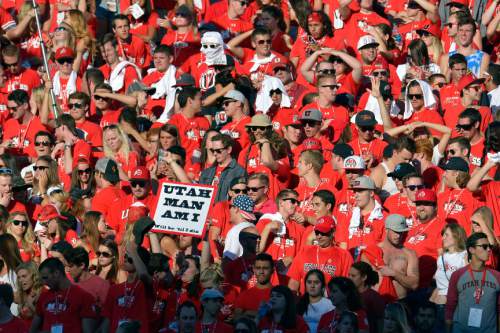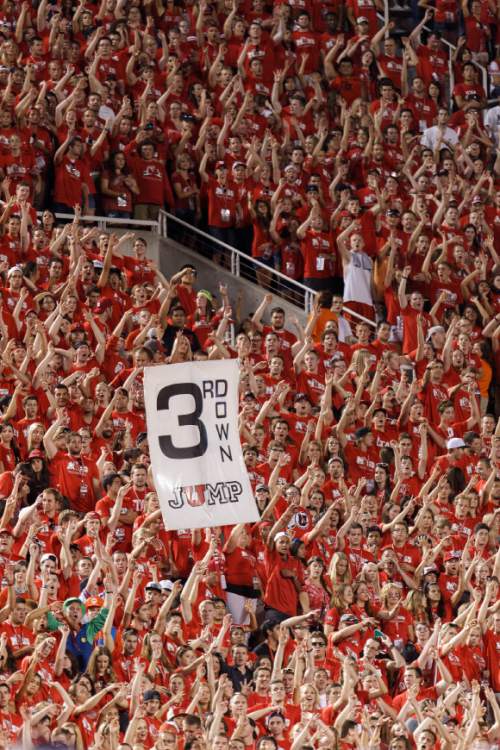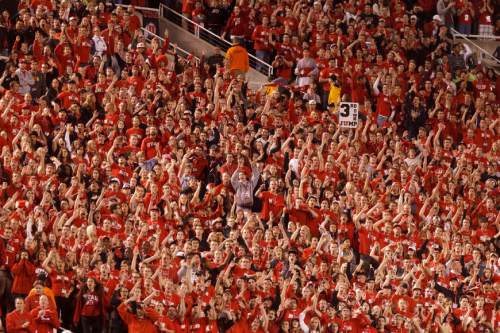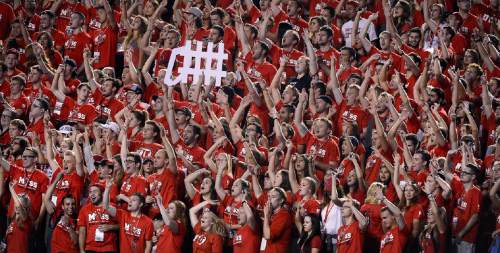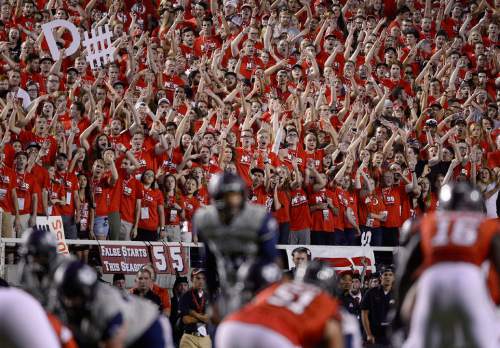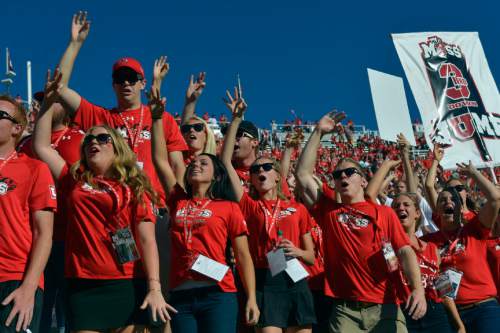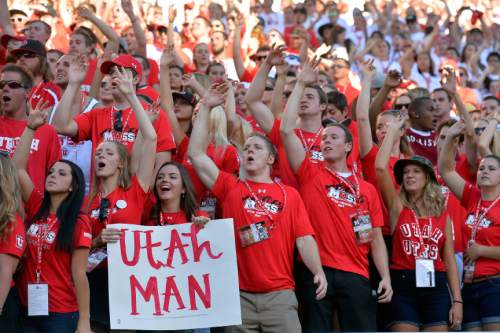This is an archived article that was published on sltrib.com in 2015, and information in the article may be outdated. It is provided only for personal research purposes and may not be reprinted.
Utah's No. 5 ranking is producing that weird brew of giddiness and paranoia around here.
In response to their team's 4-0 start, the arrival of the "GameDay" crew and the potential for a College Football Playoff berth, Ute followers are aligning themselves with two camps. One consists of the campers, who will stage a vigil on Presidents Circle in anticipation of ESPN's live programming, after campaigning for the visit and the accompanying publicity. The other includes fans who are worried that all of the buildup to Cal's visit Saturday night will lead only to disappointment.
What? The MUSS is a myth? That's not what I'm saying. The Utes enjoy a terrific home atmosphere. Student involvement is former coach Urban Meyer's greatest legacy here, as he arrived soon after the creation of the MUSS and connected well with fans. Previously written off as a commuter campus disengaged from athletics, Utah is now a model environment for college football.
The reality, though, is the Utes are 7-11 in conference games at Rice-Eccles Stadium and 8-11 in road venues, including last month's 62-20 rout of Oregon. During their breakthrough season of 2014 as conference members, the Utes went 4-1 away from home and 1-3 at Rice-Eccles. That's not quite living up to the "Protect This House" slogan of Under Armour, the athletic department's equipment supplier. And their only win required USC's botching a fourth-down play that could have clinched a victory, prior to Utah's winning drive.
Utah's home and road records have been skewed by circumstances. In 2011, the Utes took road wins over Arizona and Washington State, schools that fired their coaches, and lost at home to Washington and Arizona State, amid their own quarterbacking issues. USC in 2012 and Oregon and Arizona in 2014 brought outstanding teams to town. Yet it is also true that average-or-worse clubs from Colorado, Oregon State and Washington State have won at Rice-Eccles.
So if they expect to beat Cal, Arizona State and Oregon State in October in what ordinarily might be viewed as routine wins at this point, the Utes will have to defy some trends. In the past two seasons, road teams are 41-23 in Pac-12 games.
Nobody can explain that phenomenon. The best attempt I've elicited came from Utah defensive coordinator John Pease, a longtime college and pro coach, who suggested that no-huddle, quick-tempo offenses accustomed to using hand signals and silent counts can reduce the effect of crowd noise. "That's a guess, believe me," Pease said.
Ute senior receiver Kenneth Scott pointed out that road teams may have stronger focus, because they know being "calm and mentally dialed in" is vital. Utah coach Kyle Whittingham's only explanation is that weird trends develop sometimes, such as the road team going 10-4 in the Utah-BYU rivalry from 1993-2006.
Of course, if the Utes win all five of their Pac-12 home games this season — as they would be favored to do, as of this moment — they will have altered this whole discussion. As for the all of the attention potentially setting up the Utes to fail, I would cite "You Ain't Seen Nothin' Yet," the school's 2004 marketing campaign in advance of Meyer's second season. That year turned out pretty well, judging by a 12-0 record.
So my advice to fans would be to enjoy the national fuss about the Utes, taking these upcoming opponents seriously but not worrying that the publicity itself will result in a collapse. For this week's homecoming game, the players will wear throwback uniforms. The design elements are from the decades (1960s, '70s, '80s and '90s) when Utah never won an outright conference championship.
And only two seasons ago, the Utes won exactly two Pac-12 games. Those history lessons should be enough incentive to appreciate the good times on this campus, for as long as they last.
Twitter: @tribkurt —
Utah's home-field results in Pac-12 play
2011 • Washington (L), Arizona State (L), Oregon State (W), UCLA (W), Colorado (L).
2012 • USC (L), California (W), Washington State (W), Arizona (L).
2013 • Oregon State (L), UCLA (L), Stanford (W), Arizona State (L), Colorado (W).
2014 • Washington State (L), USC (W), Oregon (L), Arizona (L).
2015 home schedule • California, Arizona State, Oregon State, UCLA, Colorado.


